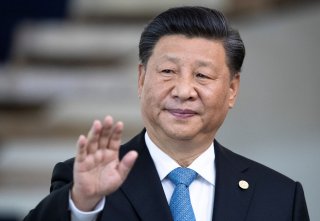When the Chinese Economy Sneezes, Everything Changes
The prospective slowing of the Chinese economy will weigh especially heavily on the emerging market economies, which account for around half of the global economy.
It is said that when the U.S. economy sneezes, the rest of the world economy catches pneumonia. But with China’s economy becoming the world’s second-largest economy, one has to wonder whether something similar might not be said of the Chinese economy. This might soon prove to be the case as that country’s acute troubles with Evergrande, the world’s largest property developer, suggest that the chickens of China’s credit and property market excesses might be coming home to roost.
Over the past twenty-five years, a distinguishing feature of the Chinese economy has been its extraordinarily rapid economic growth. That impressive growth performance has been the main engine of global economic growth, especially in the decade following the 2008-2009 Great Economic Recession. It was also the main factor behind the prolonged super boom in international commodity prices that was of such great benefit to many emerging market economies.
A principal weakness of the Chinese economy, however, has been its extreme reliance on credit creation and on its property sector to propel its economic boom. According to the Bank for International Settlements, over the past decade credit to its private sector has increased by around 100 percent of GDP. That credit growth is more than that which was experienced during the Japanese credit boom in the 1980s or the U.S. credit boom in the run to the 2006 housing market bust. At the same time, the property sector has come to constitute some 28 percent of the Chinese economy, which is almost double the corresponding proportion in the United States.
Evergrande’s flirtation with default on its U.S. $300 billion in debt would seem to suggest that China’s spectacular credit and property market bubble might have run its course. That is not to say that Evergrande’s problems will lead to a Chinese Lehman moment, especially considering the Chinese government’s complete control over its banking system. Rather, it is to say that Evergrande’s problems might be symptomatic of a wider property sector malaise and that the Chinese economy might now be headed for slower and more balanced economic growth. It might be so headed in much the same way as occurred in Japan following the bursting of its property market bubble.
Further reasons for thinking that China’s economic growth is likely to slow in the years immediately ahead is that its credit and property market bubbles are not the only clouds overhanging its economic outlook. Rather, one has to be concerned about President Xi’s increased meddling in the economy in general and in the tech sector in particular for political reasons. One also has to be concerned about the prospective progressive shrinking of the country’s labor pool as a result of its past one-child policy.
The prospective slowing of the Chinese economy will weigh especially heavily on the emerging market economies, which account for around half of the global economy. No longer will China’s Asian neighbors be able to count on a booming Chinese economy for their exports. Additionally, no longer will those commodity-dependent emerging market economies be able to count on high international commodity prices to be produced by the Chinese growth machine.
All of this does not bode well for the U.S. and world asset and credit markets, which are currently quite stretched. These markets are very well bid as investors have been encouraged to take on risks in an environment of ultra-low world interest rate. However, should the Chinese economy stutter on account of its property sector troubles and should China cast a cloud over the highly indebted emerging markets, one must expect that global investors will become more risk-averse. That in turn risks bursting the current global “everything” asset and credit market bubbles.
In gauging China’s risk to the U.S. and global economies, U.S. policymakers would do well to follow the maxim of hoping for the best but planning for the worst. This would seem to be particularly the case at a time of coronavirus-related world economic fragility and at a time that China now constitutes such an important part of the global economy.
Desmond Lachman is a resident fellow at the American Enterprise Institute. He was formerly a deputy director in the International Monetary Fund's Policy Development and Review Department and the chief emerging market economic strategist at Salomon Smith Barney.
Image: Reuters

